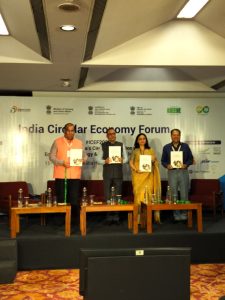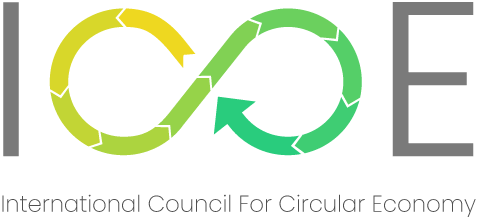
Key Recommendations and Action plan from ICEF2024
India, 22nd Aug'24
The India Circular Economy Forum (ICEF) 2024 provided a detailed and insightful exploration of circular economy practices across various sectors. Through plenary addresses, panel discussions, and accelerator sessions, industry leaders, policymakers, and experts shared their perspectives on the challenges and opportunities associated with transitioning towards a circular economy in India.
The plenary addresses emphasized the importance of extended producer responsibility, durable product design, and infrastructure investment in driving sustainability within industries such as electronics and textiles. The discussions highlighted the necessity of a comprehensive approach to waste management, particularly in high-impact sectors like steel and cement, to reduce carbon emissions and improve resource efficiency. Speakers also stressed the need for regulatory frameworks, education, and innovation to support India’s goals of achieving net-zero emissions by 2070 and full circularity across sectors.
Sessions on “Circular Cities,” “Achieving Net Zero,” and “Urban Renewal” offered practical strategies for embedding circular economy principles in urban development, water management, and infrastructure projects. Key takeaways included the critical role of citizen involvement in circular initiatives, the adoption of nature-based solutions, and the integration of ESG (Environmental, Social, and Governance) concepts into urban governance. The discussions also underlined the significance of stakeholder engagement, public-private partnerships, and community-driven programs in promoting sustainable urban development.
The industrial innovation track underscored the pivotal role of MSMEs (Micro, Small, and Medium Enterprises) in advancing circular economy practices. The discussions focused on the need for financial support, capacity building, and international collaboration to enable MSMEs to contribute effectively to the circular economy. The role of innovative technologies, such as IoT and blockchain, in enhancing supply chain transparency and efficiency was also highlighted. In the context of energy transition, there was a strong focus on the need for continuous innovation, resource efficiency, and the development of advanced recycling technologies to support sustainable energy practices.
The forum also addressed the evolving role of Material Recovery Facilities (MRFs) in waste management, emphasizing the need for formalizing the informal sector, enhancing fire safety standards, and digitizing waste management processes. Additionally, the session on “Reinventing Plastics” discussed the importance of regulatory frameworks, quality assurance, and innovative solutions in managing plastic waste.
As India moves forward in its journey towards a circular economy, the insights, and recommendations from ICEF 2024 offer a comprehensive roadmap for policymakers, industry leaders, and stakeholders. The forum’s emphasis on collaboration, innovation, and strategic investment highlights the need for coordinated efforts to build a sustainable and resilient economy that addresses environmental challenges while supporting economic growth and social well-being. By adopting circular economy principles and leveraging technological advancements, India can play a significant role in the global transition towards sustainability. The forum’s outcomes provide actionable guidance for all sectors to work together in creating a future where economic development aligns with ecological sustainability.
